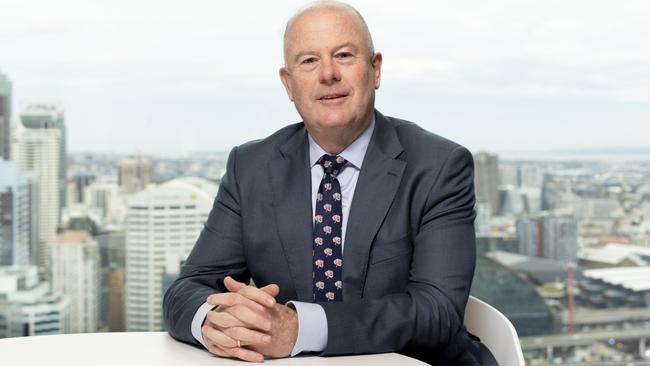KPMG calls for ASIC oversight of consultants as parliament scrutinises sector
Former Australian Securities and Investments Commission chair James Shipton has said using the regulator to police the professional services sector was a ‘sensible idea’.
Former Australian Securities and Investments Commission chair James Shipton has said using the regulator to police the professional services sector was a “sensible idea”, but would be hampered by ongoing structural issues facing ASIC.
This comes as KPMG proposed bringing in the corporate regulator to provide oversight of the sector, as the firm moved to head off scandals which have dogged the industry.
Appearing before the senate finance and public administration committee, KPMG’s senior leadership said the firm was open to a review which would see ASIC take an “extended regulatory role over our profession”.
KPMG chief executive Andrew Yates said it was important for a review into the regulatory oversight of the profession, and KPMG was supportive of lifting regulatory oversight.
“KPMG is supportive of a government review into whether ASIC should have an extended regulatory role over our profession,” he said. “We are open to what this would look like and would work constructively with government and regulators on this matter.”
An ASIC spokesman declined to comment, but Mr Shipton said he thought the proposal had merits.

However, Mr Shipton said the idea would not deal with the regulator’s funding issues and “governance design deficiencies” and would see ASIC “do even more with less”.
“It is interesting that during crises, everyone understandably turns to ASIC, yet it still doesn’t warrant sufficient long-term funding from the government, or a couple of pages of a statement of expectation,” he said.
“ASIC needs the investment levels and corporate governance structure that the complexities of the modern day demand.”
Mr Yates said the professional services and tax industry should also be subject to a number of added powers, including tougher tax advisory firm governance and best-practice principles.
“The principles reflect the high expectations the public has of tax advisers, but we think they could go further to strengthen governance and accountability,” Mr Yates said.
“This could be achieved by codifying the voluntary code into legislation.”
Mr Yates said an integrity charter should also be introduced for consultants working with the Australian government’s public service. “At the end of every piece of work, the government could assess compliance with the charter,” he said.
The KPMG boss said the firm was supportive of the Department of Finance’s proposal to establish a new procurement process for labour hire workers.
“Given the government’s commitment to building the capacity of the public service, we have not tendered for the new labour hire services panel and will not participate in this type of work in the future,” Mr Yates said.
Wednesday’s hearings were originally slated to focus on PwC’s use of confidential information to construct tax strategies for clients after the Multinational Anti Avoidance Law came into effect in 2016. But a move by Treasury to refer PwC and its former head of international tax Peter Collins to the Australian Federal Police saw a shift in the committee‘s focus, amid concern it may prejudice the investigation.

The AFP have flagged investigations may see other PwC staff face consequences for the breach.
This came after the parliament revealed 144 pages of emails which showed Mr Collins had released confidential information to other staff in the firm in a bid to structure schemes to sell to clients to dodge as much as $180m in tax.
PwC has largely declined to name staff and partners at the firm who handled the confidential information, but on Monday revealed the identities of four former staff at the business it said were involved in the scandal.
PwC moved to supply the committee the full list of 63 names, but the committee declined to release the names amid legal concerns.
Mr Yates said KPMG “would have acted differently” and the names would have been shared.
Appearing before the same committee, the Tax Practitioners Board, which hit Mr Collins with a two-year ban, said it was formally investigating other PwC staff after several months of reviews.
However, the TPB only kicked off the formal component of its investigations last week, with the regulator required to conclude within six months.
TPB chief executive and secretary Michael O’Neill said the regulator had started reviewing materials in February before these activities became “more formal and focused” in the last few months. But parliament heard the TPB and the Australian Taxation Office clashed over investigations into the PwC leaks. The ATO confirmed it had “forthright discussions” with the TPB.








To join the conversation, please log in. Don't have an account? Register
Join the conversation, you are commenting as Logout